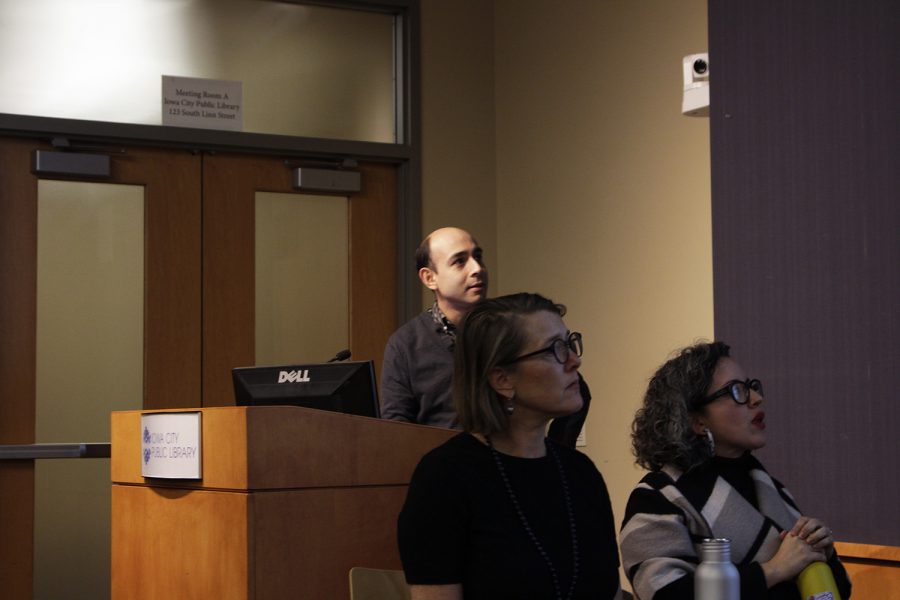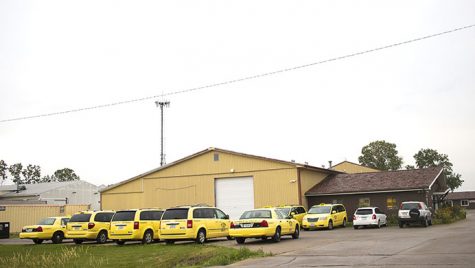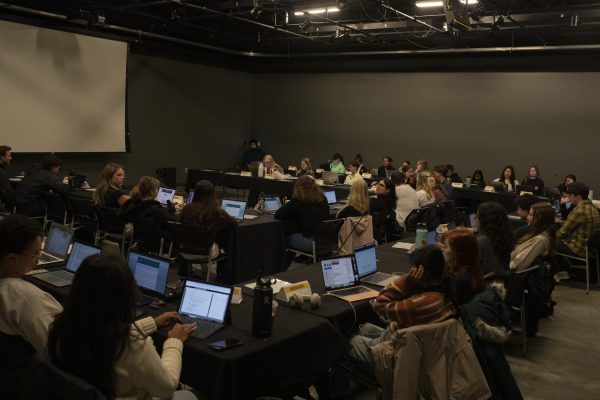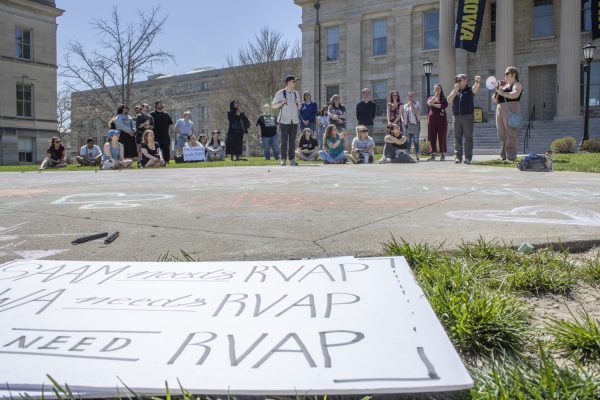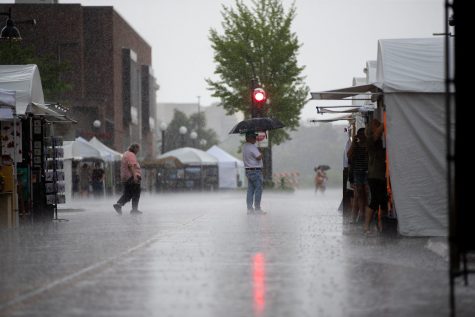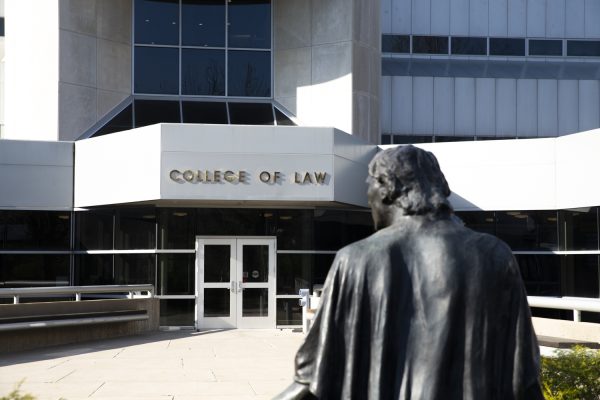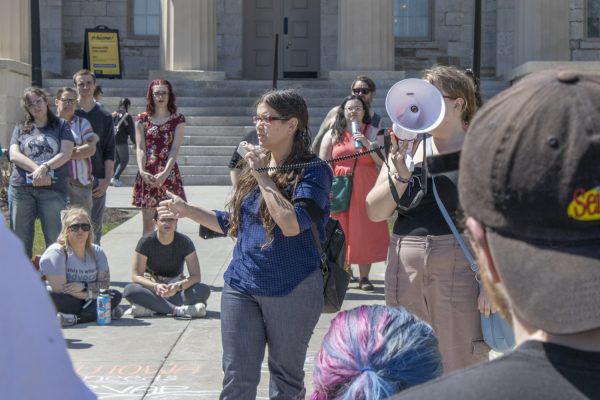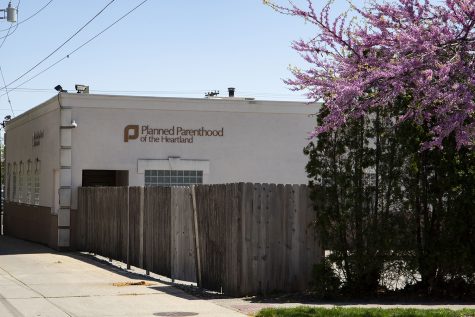U.S.-Mexico border forefront of Obermann Conversation
Three UI professors were among four people who shared their firsthand experiences as well as historic and modern analyses of immigration and deportation at the southern border during an Obermann Conversation on Thursday.
Rene Rocha gives a presentation at a discussion of border security. The Border Panel was held at the Iowa City Public Library this Thurs.
December 6, 2018
The border between the United States and Mexico, and the history and effects of people crossing there, was at the forefront of the Obermann Conversation “The U.S./Mexico Border in Context.”
The issue has come to light amid action by President Trump and members of his administration to affect U.S. border policy, proposing building a wall and moving to limit attempts to cross the border. Around 40 people attended the event, at the Iowa City Public Library, 123 S. Linn St., on Thursday.
Lina-Maria Murillo, a University of Iowa assistant professor of history and gender, women’s, and sexuality studies, began the presentation with a brief history of Mexican migration into the U.S. She also covered deportation from the United States, beginning after the conclusion of the Mexican-American War in 1848.
“With the stroke of a pen in 1848, you have about 500,000 Mexicans who become U.S. citizens, but of course, they were not treated as such,” she said.
She discussed the Bracero Program and American involvement in the politics of Central and South America. The Bracero Program was an agreement between Mexico and the U.S. that allowed Mexican laborers to work in the U.S. on a short-term basis, primarily in agriculture, starting in 1942. The program lasted until 1964.
Rene Rocha, a UI associate professor of political science, focused on the decrease of illegal immigration into the U.S. over the last dozen years.
RELATED: Trump sends National Guard troops to border, Iowa not yet affected
“Zero tolerance is a solution to a nonexistent problem,” he said in relation to a federal policy of increased allocation of border officials to apprehend migrants and asylum seekers.
The zero-tolerance policy, announced by former U.S. Attorney General Jeff Sessions in April, theoretically ended in June after public outcry and court challenges to the results of the policy — primarily, children being separated from their parents when agents detained them for crossing the border illegally.
Zero tolerance is a solution to a nonexistent problem.
— Rene Rocha, UI associate professor of political science
Rocha said that because of the decrease in apprehensions at the border itself, more Immigration and Customs Enforcement officials are being used to find illegal immigrants in interior states, including Iowa.
Yolanda Rivera, the chair of the Equity Committee for the Iowa City School District, talked about her experience as a lawyer for fathers and their sons in detention centers at the border and the reasons many are detained for long periods of time.
“When you’re applying for asylum, you first go through a credible fear interview,” Rivera said.
Many of the individuals, she said, were unable to speak with an interpreter because of their inability to speak English or Spanish, and therefore required other interpreters to be found to hear their asylum claims.
During her stay at the facility, she discussed how some fathers held a peaceable protest against the monthslong waiting times and how that resulted in their separations from their sons.
Kristy Nabhan-Warren, a UI professor of religious studies, spoke from a series of notes she wrote called “Dispatches from the Border: Summer 2018.” The notes describe a series of interviews she did with her cousin, an Arizona State University professor. She said she interviewed people including border-patrol agents, pastors, and migrants in states on the border, such as Arizona and Texas, for the project.
Similar to Rivera, Nabhan-Warren also talked about the care of minors, both accompanied and unaccompanied, she had witnessed in the detention facilities.
“We came away from our journey with the … understanding that the separation of families at the border emerged as a societal crisis that will be remembered for decades,” Nabhan-Warren said.



